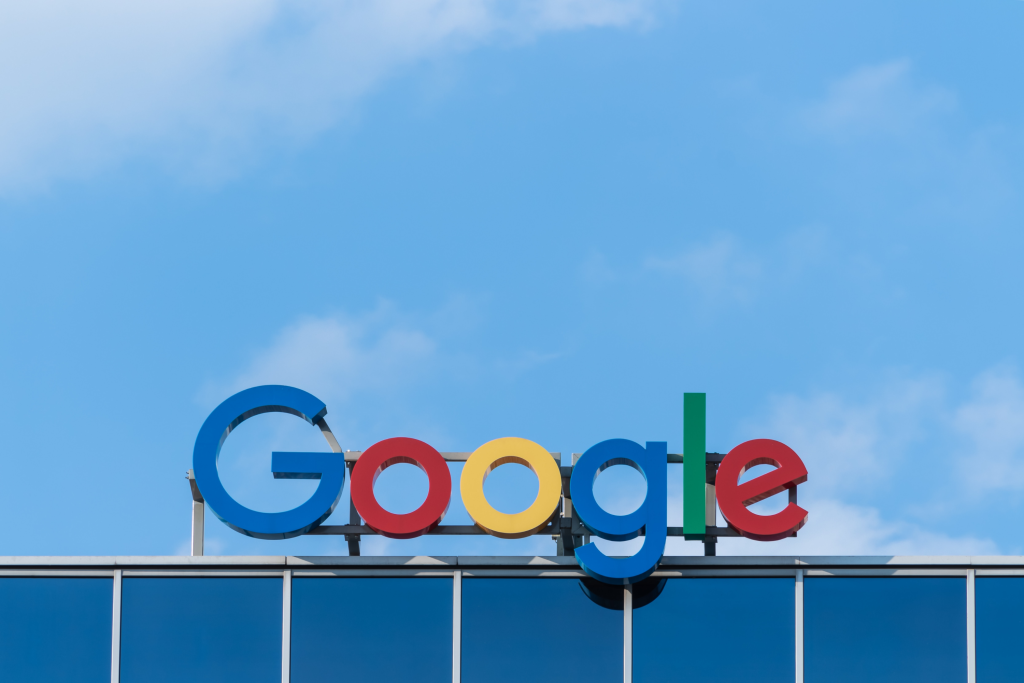The Power of Google’s Algorithms
Google, the ubiquitous search engine we rely on, owes its effectiveness to complex algorithms. These algorithms determine which web pages to show in search results and what order. Understanding how Google’s algorithms work is crucial for anyone with an online presence.

Why Google Updates Matter
Google’s algorithms are not set in stone. They undergo regular updates to enhance the search experience. These updates can have a significant impact on website rankings. Staying informed about these changes is essential for maintaining and improving your website’s visibility.
Understanding Google Algorithm Updates
Google algorithm updates are modifications to the search engine’s core algorithms. These changes are designed to improve search result quality and adapt to evolving user behaviour and expectations.
Frequency of Updates
Google updates its algorithms frequently, with thousands of changes made each year. While most are minor, some are substantial updates that can profoundly impact search results.
Significance of Updates
Each update serves a specific purpose, from combating spammy content to improving the relevance of search results. Understanding the goals of these updates can help digital marketers and webmasters align their strategies with Google’s intentions.

Key Google Algorithm Updates

Panda
Purpose and Impact: The Panda update, introduced in 2011, aimed to penalise low-quality, thin content. Websites with shallow or duplicate content were affected.
How Panda Works: Panda evaluates the quality and uniqueness of content on web pages. It rewards high-quality content with better rankings.
SEO Best Practices Post-Panda: Focus on producing high-quality, original content that provides value to your audience.

Penguin
Purpose and Impact: Penguin, launched in 2012, targeted websites with unnatural or spammy backlinks. It aimed to promote link quality.
How Penguin Works: Penguin assesses the quality of backlinks pointing to a website. It penalises those with spammy or irrelevant links.
Avoiding Penguin Penalties: Build a natural backlink profile by earning high-quality links from reputable sources.

Hummingbird
Purpose and Impact: Hummingbird, introduced in 2013, improved the understanding of user search queries. It aimed to provide more precise results.
How Hummingbird Works: Hummingbird focuses on the context of search queries, understanding their intent.
Content Strategy for Hummingbird: Craft content that comprehensively answers user queries, addressing their search intent’s explicit and implied aspects.

RankBrain
Purpose and Impact: RankBrain, launched in 2015, introduced AI into Google’s algorithms. It improved the interpretation of ambiguous queries.
How RankBrain Works: RankBrain uses machine learning to understand user queries better and deliver more relevant results.
Optimising for RankBrain: Create content that caters to a wide range of user queries and intents to align with RankBrain’s capabilities.

Mobilegeddon
Purpose and Impact: Mobilegeddon, in 2015, prioritised mobile-friendly websites in mobile search results as users are searching more often on smartphones.
How Mobilegeddon Works: This update assesses the mobile-friendliness of websites, favouring responsive designs.
Mobile SEO Essentials: Ensure your website is mobile-responsive, loads quickly on mobile devices, and provides a user-friendly experience.

BERT
Purpose and Impact: BERT, introduced in 2019, improved the understanding of the context within search queries.
How BERT Works: BERT analyses the context of words in a query, delivering more contextually relevant results.
Creating Content for BERT: Focus on natural language in your content, answering questions comprehensively to match BERT’s capabilities.

Google’s Core Algorithm Updates
Google’s core updates are broad algorithmic changes that can impact various search results. These updates often involve improvements to how Google understands and ranks content.
Impact on Rankings
Core updates can result in significant shifts in search rankings. Website owners and digital marketers must stay informed about these changes to adapt their strategies accordingly.
Strategies for Core Updates
To navigate core updates successfully, the content marketing team should focus on producing high-quality content, optimising the user experience, and ensuring your website follows best SEO practices.
The Influence of AI on Google Algorithm Updates
Artificial Intelligence (AI) is increasingly vital in search engine optimisation (SEO). Google employs AI-driven algorithms to enhance user experiences and deliver more accurate results.
How AI Impacts Algorithm Updates
AI enables Google to understand user intent better, detect patterns, and improve the relevance of search results. It also aids in identifying and penalising manipulative tactics.
AI and Personalisation
Google uses AI to personalise search results based on a user’s search history and preferences, providing tailored experiences.
AI’s Role in Content Analysis
AI-driven tools can assist strategists in analysing content quality, keyword optimisation, and user engagement, helping to improve overall SEO strategies.

Latest: September 2023 Helpful Content Update
Google has recently completed the rollout of its September 2023 Helpful Content Update, which commenced on September 14 and concluded on September 28, marking a significant development in the SEO industry.
This update is part of its ongoing commitment to enhancing search quality and providing users with more relevant and valuable content. The update targets Google’s Helpful Content System, designed to prioritise people-first content and demote content created solely for search engine rankings.
Key Changes Introduced in this September 2023 Update
This update has ushered in three significant modifications to the Helpful Content System’s guidelines:
Machine-Generated Content: Google has revised its stance on machine-generated content, aligning it more closely with its overall content quality guidelines. This shift reflects a more favourable disposition towards AI-generated content, emphasising the importance of producing helpful material.
Hosting Third-Party Content: The update addresses the practice of hosting third-party content on a website’s primary domain or subdomain. It is essential to note that hosting unrelated or unsupervised third-party content can now adversely affect your site’s ranking. Google recommends blocking the indexing of such content when it does not align with the main site’s purpose or lacks direct oversight.
Updated Self-Assessment Guidance: Google’s self-assessment guidelines for helpful content have been updated to provide webmasters with clearer insights. The emphasis is now on thorough content review, discouraging false updates to pages, and cautioning against manipulative tactics aimed at appearing “fresh” in search rankings.
Staying Ahead of Google Updates
Google’s ongoing efforts to reduce low-quality content and enhance the authenticity and usefulness of search results remain evident. If your website has been affected by Google algorithm updates, assessing your content and making the necessary adjustments is crucial.
Recovery may take several months, so adhering to Google’s guidelines and continuously enhancing your content is essential. To stay updated with the changes in the Google algorithm, consider taking these steps:
Monitoring Algorithm Changes
Stay informed about Google’s updates by following official announcements and reputable SEO news sources.
Adapting SEO Strategies
Flexibility is key. Be prepared to adjust your SEO strategies in response to algorithm updates and evolving industry trends.
Avoiding Penalties
Follow Google’s guidelines and best practices to avoid penalties. Regularly audit your website for issues that may trigger algorithmic penalties.
Conclusion
As the digital landscape evolves, staying informed about Google’s algorithm updates and adapting your SEO strategies accordingly is paramount to maintaining and improving your website’s visibility and relevance.
Google’s commitment to improving the search experience means constant algorithmic evolution. Thus, understanding Google’s algorithm updates and the role of AI can help you stay competitive.
We understand it may be difficult to keep up with industry news and changes; hence, we are here to help you stay updated with the latest SEO insights. Look out for our monthly newsletters to receive exclusive insights and recommendations directly in your inbox.
Feel free to contact NewNormz with any questions or if you need assistance with your SEO efforts.
FAQs
1. What is the Google algorithm?
Google’s algorithms extract data from its search database and deliver relevant information, responding to a specific query. These algorithms meticulously scan the vast array of content within Google’s index, searching for phrases and keywords that align with the query.
2. Who created the algorithm for Google?
Larry Page and Sergey Brin, aided by Scott Hassan and Alan Steremberg, created an initial search algorithm called “BackRub” in 1996, while studying at Stanford University in California.
BackRub was the initial name of their search engine project, and PageRank was the algorithm they created to power this search engine. Eventually, BackRub was renamed Google, and PageRank became a crucial component of Google’s search algorithm to rank pages in the search engine result pages (SERPs).
3. How often does Google change its algorithm?
The Google algorithm undergoes updates approximately 500 to 600 times annually, as experts estimate. The majority of these alterations are minor and have minimal effects on rankings. However, significant updates such as BERT or Passage Ranking can substantially influence a significant portion of keyword searches.
4. How complicated is Google’s algorithm?
Google’s algorithm is highly intricate, and its precise operation remains undisclosed. It is thought to encompass over 200 ranking factors, and not all are known to the public. Even if they were, the algorithm’s dynamic nature means such knowledge would quickly become outdated.
5. Why is SEO important for your website’s online visibility?
SEO aids in achieving higher rankings in search results and increasing your online visibility. This heightened visibility encourages potential customers to visit your site and convert and fosters brand familiarity, even if users do not immediately engage or make a conversion.
Bryan Tan is an SEO Specialist and CEO at Newnormz, helping hundreds of businesses achieve first-page rankings on Google. With a passion for driving organic growth, Bryan blends innovative strategies with hands-on experience to optimize websites for maximum visibility. Always at the forefront of the latest SEO insights and trends, he consistently adapts to the evolving digital landscape.






